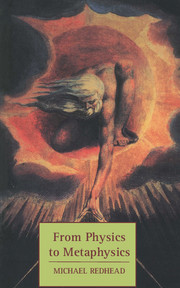4 - Theories of Everything
Published online by Cambridge University Press: 05 August 2012
Summary
In 1980 Stephen Hawking delivered his inaugural lecture as Lucasian Professor at Cambridge with the title ‘Is the End in Sight for Theoretical Physics?’ Hawking was cautiously optimistic that by the end of the twentieth century the answer might have turned out to be ‘yes’. Since we have now reached beyond the half-way mark, I thought it might be appropriate to take stock.
The view I am going to discuss is that physics and, more generally, experimental science has developed at an increasingly rapid rate since its inception in the seventeenth century, and will simply burn itself out in a final frenzy of intellectual effort. It is rather like the exploration of the physical globe – there is only one globe, and once all the continents, mountains, rivers, etc., have been discovered, the work is essentially finished, there is just detail to fill in. Although it may be granted that there are infinitely many exact locations on the globe, there is a real sense in which the job of map-making on any ‘interesting’ scale is finite, completable and has in fact been completed over a total span of less than 500 years.
Towards the end of the nineteenth century Lord Kelvin is famously supposed to have claimed that all that remained in physics was the job of filling in the next decimal place. Matter, and energy in its diverse forms, were governed by mechanical laws and the principles of thermodynamics.
- Type
- Chapter
- Information
- From Physics to Metaphysics , pp. 63 - 88Publisher: Cambridge University PressPrint publication year: 1995



